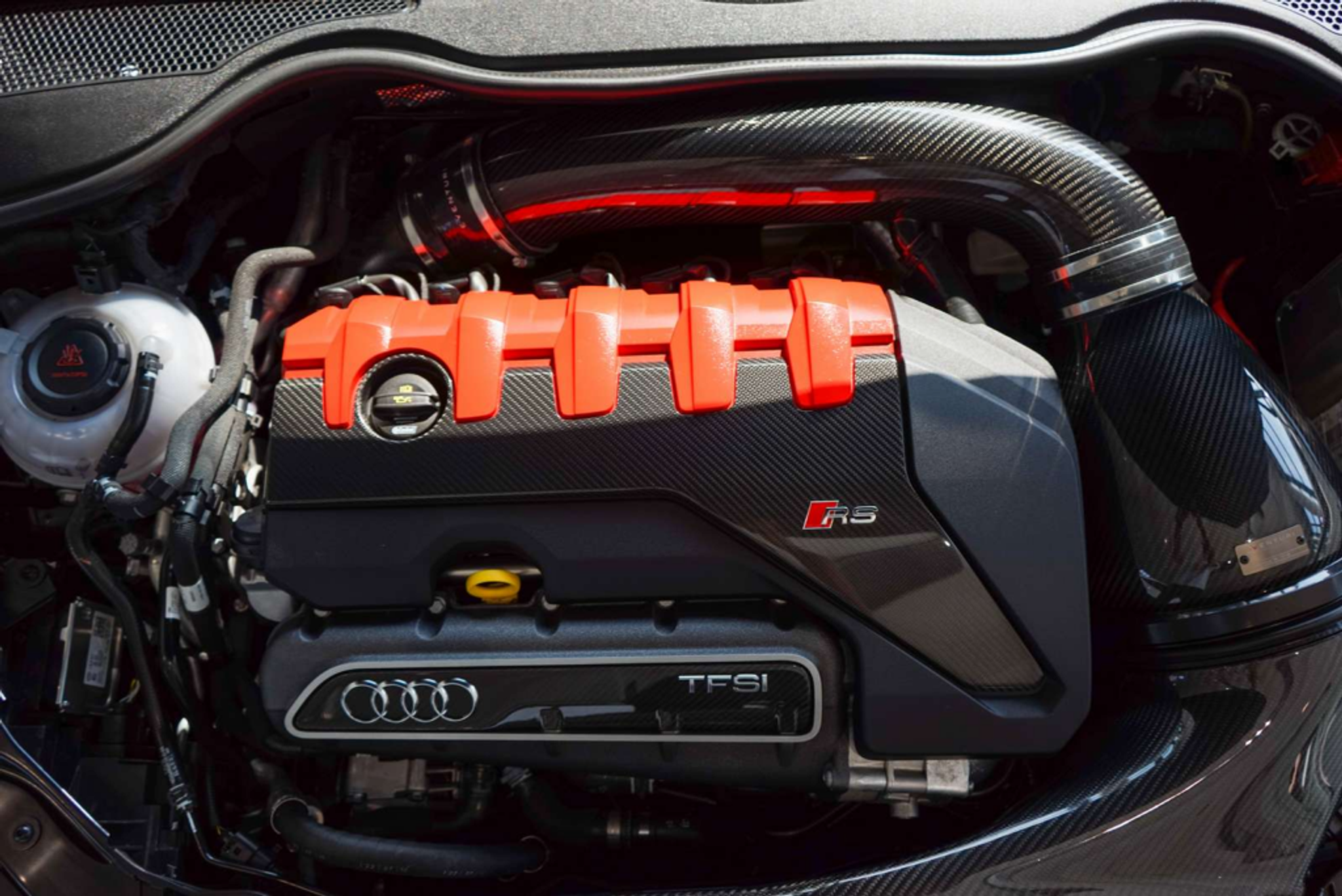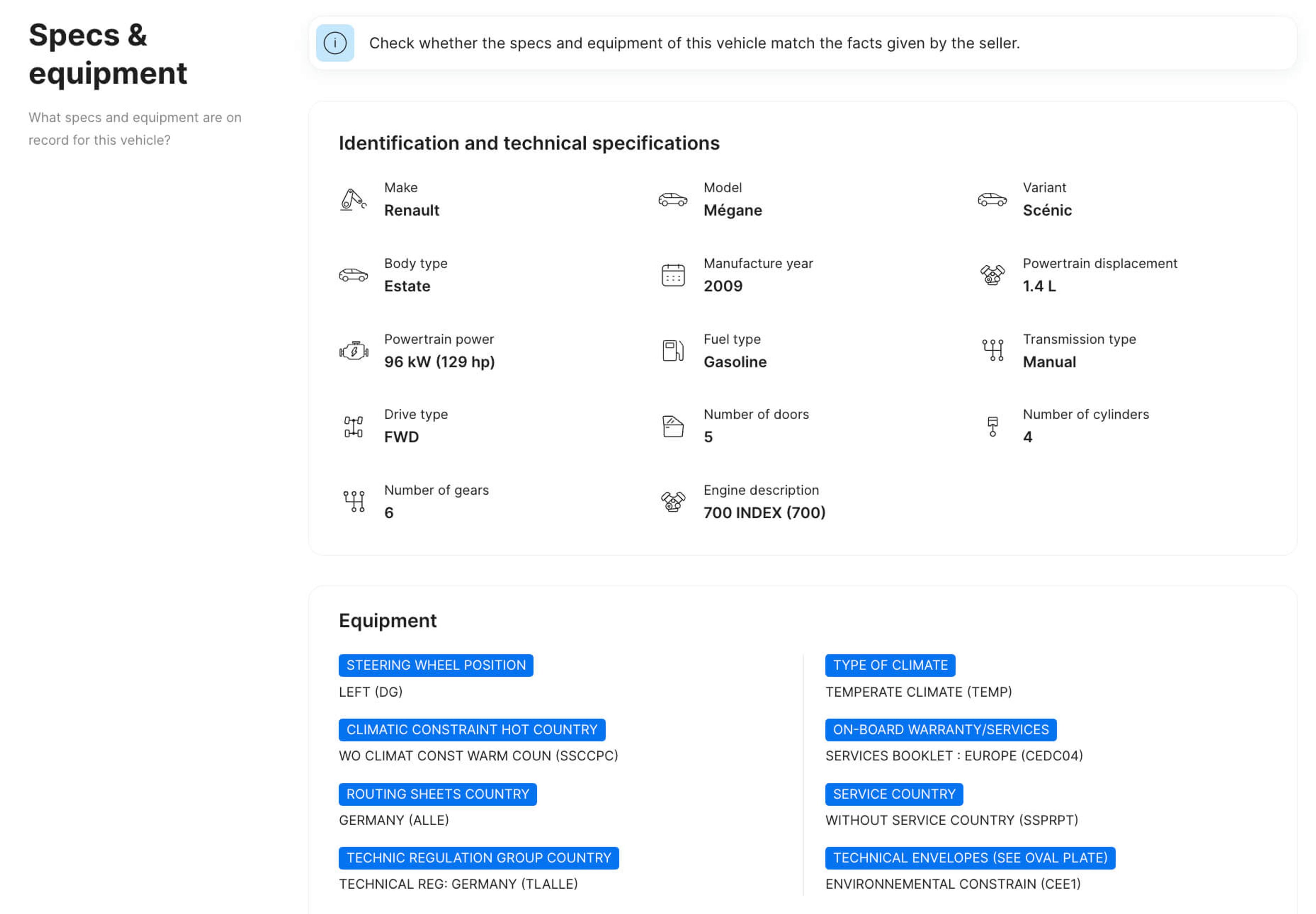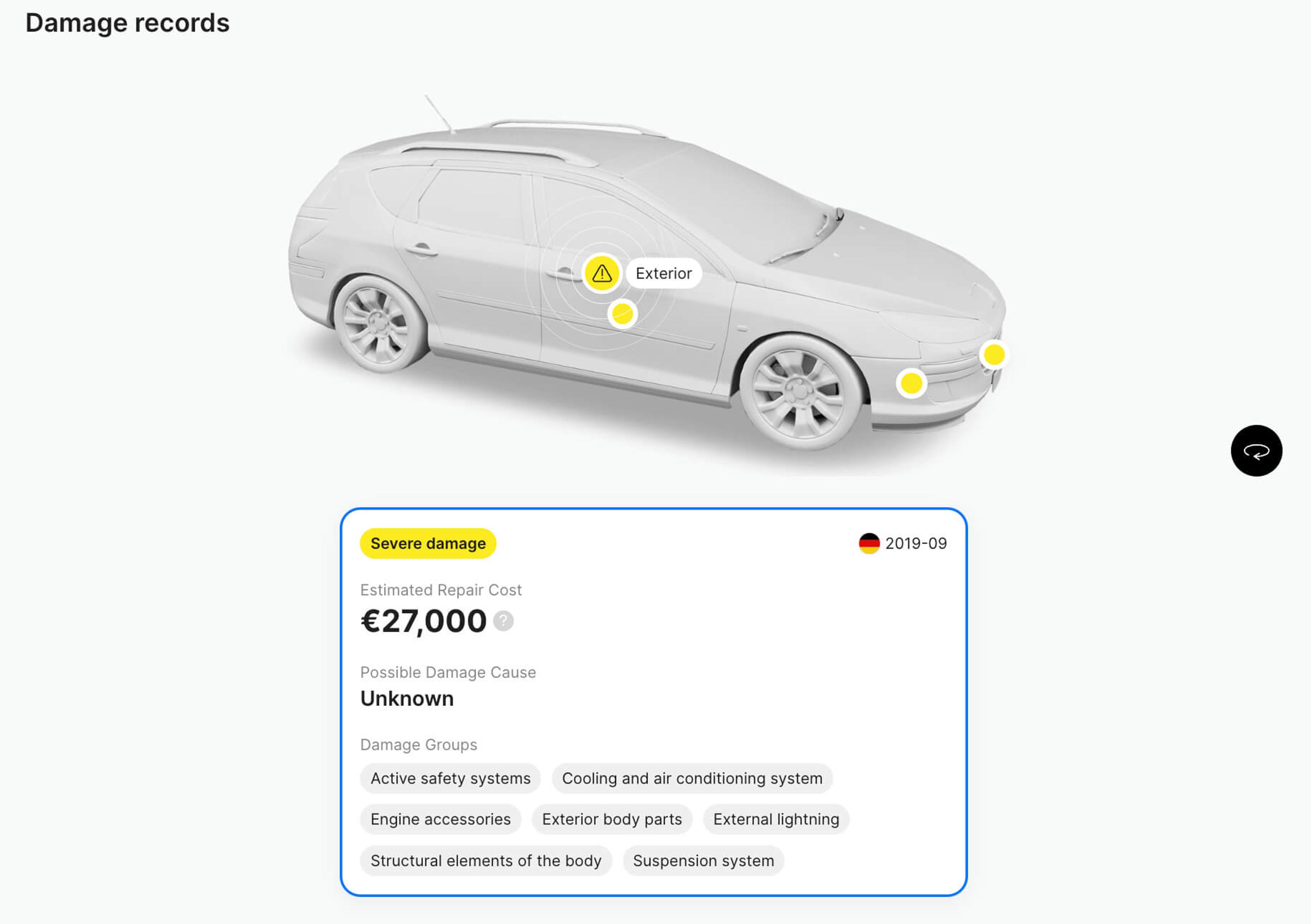
The engine control unit (ECU) is the brain of the engine, which controls various functions, like fuel delivery, ignition timing, and more. Tweaking the ECU is a powerful way to improve the engine's power, fuel consumption, and other characteristics.
So what exactly is ECU remapping and what can drivers gain from it?

Used cars have dark secrets
Reveal them all! Just enter a VIN code and click the button:
ECU remapping – a simple way to improve your engine
Nowadays, complex software handles engine management and modifying the ECU can bring significant gains in efficiency and performance.
When the engine control unit was introduced in 1978, the automotive industry quickly became aware of this technological breakthrough, which made optimizing engine performance significantly more accessible and efficient.
In modern cars, the ECU manages spark timing, fuel injection, electronic throttle control, and the turbocharger boost. Since it controls many individual parts, modifying the software allows you to significantly improve the engine's performance.
Why modify the original ECU software?

Vehicle customization can be divided into 2 groups: mechanical and electronic. Upgrading the mechanical parts demands considerably greater investments and expertise. For instance, fitting a more powerful turbocharger requires upgrading the cooling system radiator to ensure the engine stays cool under heavier loads.
In contrast, remapping the ECU eliminates any additional expenses of changing components since the basic level of software revision doesn’t compromise the longevity of the standard parts.
Upgrading your ECU software can immediately give the following benefits:
- Better fuel efficiency
- Improved throttle response
- More power and torque
Is ECU remapping only for performance cars?
The ECU remap can be done for all cars with an engine control unit. However, the end results depend not only on the engine displacement or how many cylinders it has but also on whether it's a naturally aspirated or turbocharged engine.
When performing an ECU remap for naturally aspirated engines, the increase in performance won’t be high enough to justify the expenses of car tuning. Meanwhile, turbocharged engines generate significant power and torque gains.
What are the benefits of ECU remapping?
Like any type of vehicle modification, ECU remapping will cost you some money. However, the practice has some attractive benefits, some of which can end up saving you money in the long term.
Increased power and better performance
The factory-installed engine management software of modern vehicles is built to ensure they meet stringent homologation tests. It means certain settings serve to reduce CO2 emissions but have a negative impact on a vehicle’s performance.
By updating your engine's software, you can eliminate the factory limits and enjoy acceleration, torque, and agility improvements.
The average increase in power after an ECU remap is between 15-20%, regardless of displacement.
Here’s a few examples of ECU remapping:
- APR ECU upgrade for Audi vehicles with EA113 engine – $399
- HPA Motorsport ECU upgrade for Volkswagen vehicles with EA888 engines – $699
- DINAN ECU upgrade for BMW vehicles with B46 engines – $499
Better fuel economy
A high-quality ECU remap won’t only give you a better performance, it could also improve fuel economy by up to 20%. The effect is strongly evident in diesel engines, where factory software limits performance and overall efficiency of the engine.
ECU remapping is cheap
Trying to modify key components of your vehicle may cost enough to purchase a reasonably priced second-hand car. By contrast, a standard ECU remap gives impressive and cost-effective improvements that will have a positive impact in the long run.
See the following examples of how much this sort of tuning costs:
- APR ECU upgrade for Audi vehicles with EA113 engine – $399
- HPA Motorsport ECU upgrade for Volkswagen vehicles with EA888 engines – $699
- DINAN ECU upgrade for BMW vehicles with B46 engines – $499
Safety issues with ECU remapping

Most car owners think that modifying a vehicle is dangerous and poses serious risks to critical components. However, it’s important to note that all breakdowns occur due to poor execution of the ECU remap or inadequate car maintenance.
Is remapping dangerous or harmful to the engine?
Once a car rolls from the factory, it should be completely trouble-free with the correct level of maintenance. Once you start tweaking the factory settings, you certainly risk causing damage to the engine or other parts.
However, once the new software is installed, the chance of engine failure is very low, as the Stage 1 ECU remap is designed to respect the durability of the standard engine parts. If you wish to proceed with the Stage 2, Stage 3, or even Stage 4 power boost program, then you must, for example, upgrade the oil, transmission, engine cooling, or other components to ensure the engine can handle the increased power output.
Preventing issues with ECU remapping
Any modifications you make to a vehicle pose a considerable risk of unexpected problems. After all, a car has thousands of different parts that, if not appropriately maintained, could fail.
To prevent this from happening, it’s important to ensure your vehicle is in a healthy technical condition. Inspect the cooling and fuel systems and, most importantly, the turbocharger. You can proceed with any modifications only after you are confident these components are in good running condition.
How does ECU remapping change a car’s value?
The majority of second-hand vehicle buyers view modified cars as higher-risk purchases. When buying a standard car, buyers are aware that any qualified workshop can deal with the issues. Whereas a modified vehicle may contain one or more custom parts, which brings to question the vehicle's long-term reliability and replacement costs.
The residual value of modified cars typically only increases in exclusive models like the Audi RS5, Honda Civic Type R, or Porsche 911.
Before buying, check the original specifications of a used car
Despite the numerous advantageous traits a vehicle gains from a modified ECU, prospective buyers of such cars should bear in mind that these vehicles are often driven aggressively. This implies that while noticeable performance improvements are achieved, they come at the cost of increased wear and tear.
However, the most significant concern is that the exhilarating performance gains can lead to accidents, resulting in damage to a vehicle's bodywork, suspension, and, in the worst cases, the engine and transmission.
Given the heightened risk, it is essential to learn about the vehicle's history before buying it, including its original specifications and equipment.

The ability to compare the original specifications with those of the car for sale offers significant advantages, as there are occasional cases when owners choose to reduce repair costs by selecting components such as headlights, interior trims, or even seats from less expensive versions.
Additionally, if a modified vehicle was involved in an accident, insurance company data will reveal the extent of the car's damage and which parts required replacement.


Check your registration number
Avoid costly problems by checking a vehicle's history. Get a report instantly!
Frequently asked questions

Article by
Evaldas Zabitis
Evaldas has been writing since middle school and has had a passion for cars for as long as he can remember. Right after getting his driver’s license, he spent all of his savings on shoddy cars so he could spend time fixing, driving, and selling them. Evaldas is always interested in automotive technical innovations and is an active participant in automotive community discussions.
